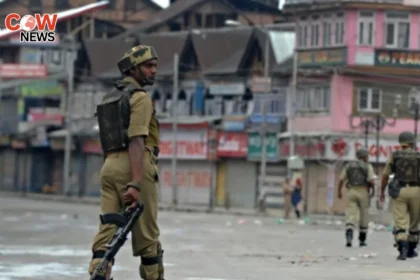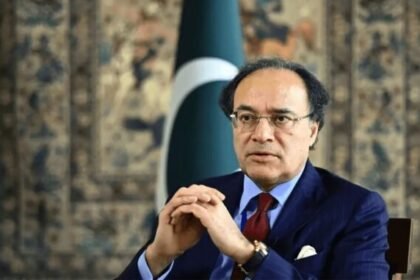In a move set to bring new leadership to Pakistan’s aviation sector, Nadir Shafi has been appointed as the new Director General (DG) of the Civil Aviation Authority (CAA) for a three-year tenure. The decision has been met with widespread optimism within the industry, as Shafi’s experience in aviation management, his leadership qualities, and his vision for the future are expected to breathe fresh life into Pakistan’s aviation sector.
This appointment comes at a crucial time when the aviation industry in Pakistan is facing challenges on multiple fronts, including safety concerns, infrastructure improvements, and the need for regulatory reforms. With Nadir Shafi at the helm, industry experts believe that the CAA will undergo significant improvements in operational efficiency, safety measures, and international collaborations
Who is Nadir Shafi?
Nadir Shafi is a well-regarded figure in the aviation industry, known for his leadership roles both domestically and internationally. He has previously held senior positions in several aviation-related organizations, where he earned a reputation for his ability to handle complex challenges and implement strategic initiatives. His background includes experience in airport management, regulatory frameworks, and airline operations, giving him a well-rounded understanding of the aviation ecosystem.
Shafi holds an advanced degree in aviation management and has participated in various leadership training programs across Europe and the United States. Over the years, he has developed a deep understanding of the global aviation landscape, and his technical expertise is complemented by his strong management and diplomatic skills. His ability to build consensus and foster collaborations among diverse stakeholders is seen as one of his key strengths as he takes on the role of CAA Director General.
Shafi’s leadership style is often described as transformative and inclusive. He is known for involving all relevant stakeholders in decision-making processes and for pushing initiatives that enhance efficiency and modernization. As Pakistan’s CAA looks to meet international standards, especially in safety and service, Shafi’s experience in managing global aviation challenges is expected to be a major asset.
Challenges Facing Pakistan’s Aviation Sector
The aviation industry in Pakistan has faced its fair share of hurdles in recent years. From concerns over safety regulations and financial instability within airlines to the need for infrastructure improvements, the country’s aviation sector is in need of both leadership and reform. Nadir Shafi’s appointment is seen as a response to these challenges, with the government hoping that a change in leadership will pave the way for long-awaited improvements.
One of the most pressing issues is Pakistan’s standing with the International Civil Aviation Organization (ICAO) and other global aviation bodies. The country has faced criticism over the lack of safety protocols and regulatory compliance, leading to temporary bans on Pakistani carriers flying to Europe and other regions. With Nadir Shafi in place, there is renewed hope that Pakistan can rebuild its reputation on the international stage and work towards lifting these bans by improving safety standards and regulatory oversight.
Moreover, Pakistan’s airports have long needed upgrades in both technology and infrastructure. Many of the country’s airports lag behind international standards in terms of efficiency, passenger comfort, and operational capacity. This includes the need for modern equipment, better training for airport staff, and improved facilities for passengers. Shafi has already expressed his intention to prioritize these upgrades, ensuring that airports in Pakistan can handle increased traffic and provide a better travel experience for both domestic and international passengers.
Safety and Security: A Top Priority
One of the areas where Nadir Shafi’s expertise will be most valuable is in enhancing safety measures within Pakistan’s aviation sector. Over the years, several incidents have raised serious concerns about the safety of flights operating within and out of Pakistan. This has impacted both public confidence and the reputation of Pakistani airlines abroad.
Shafi is expected to focus on strengthening the regulatory framework of the CAA, particularly in the areas of flight safety and pilot training. His previous experience in enforcing stringent safety protocols will likely lead to the introduction of more rigorous checks and balances across the aviation industry in Pakistan.
Under Shafi’s leadership, the CAA is expected to work closely with international regulatory bodies, such as ICAO, to ensure that Pakistan’s aviation sector meets global standards. This could involve the revision of existing safety regulations, improved oversight of airline operations, and enhanced pilot training programs to ensure that Pakistan remains competitive and compliant with international norms.
In addition, airport security is likely to receive greater attention under Shafi’s leadership. Ensuring the safety of passengers, crew, and aircraft is paramount in today’s aviation world, especially in light of global security threats. Shafi’s vision reportedly includes bolstering security measures at major airports across Pakistan, including the installation of more advanced surveillance systems, enhanced training for security personnel, and closer collaboration with international security agencies.
Infrastructure Development and Modernization
The Future of Pakistan’s Aviation Industry
As Nadir Shafi assumes his role as Director General of the CAA, he has outlined several key objectives for the future of Pakistan’s aviation industry. First and foremost, his administration will focus on ensuring that Pakistan complies with international aviation standards, both in terms of safety and operational efficiency. This will require close coordination with global aviation bodies, as well as the introduction of new technologies and management practices within Pakistan’s aviation sector.
Furthermore, Shafi has pledged to enhance collaboration between the public and private sectors. He recognizes that the private sector can play a crucial role in modernizing the country’s aviation infrastructure and improving overall service quality. By encouraging private investment in airports and other key aviation facilities, Shafi hopes to accelerate the pace of development and create a more competitive and dynamic aviation industry in Pakistan.
Additionally, Nadir Shafi has expressed his commitment to fostering innovation within the CAA. As technological advancements continue to reshape the global aviation landscape, Shafi is keen to explore how new technologies such as artificial intelligence, data analytics, and automation can be integrated into Pakistan’s aviation framework. From improving flight scheduling and optimizing fuel efficiency to enhancing customer service, innovation will be at the heart of Shafi’s strategy for the CAA.
Addressing Environmental Concerns
In recent years, the global aviation industry has come under increasing pressure to reduce its environmental footprint, and Pakistan is no exception. Shafi’s appointment comes at a time when sustainability is becoming an important consideration for the aviation sector, and his administration is expected to focus on implementing greener practices across the industry.
This could involve the adoption of more fuel-efficient aircraft, the use of sustainable aviation fuels (SAF), and the introduction of carbon offset programs for passengers. Shafi is also expected to prioritize efforts to reduce noise pollution and air traffic emissions, particularly in urban areas near major airports.
In this context, collaboration with international environmental organizations and aviation experts will be crucial. By adopting best practices from other countries and aligning with global sustainability goals, Shafi aims to position Pakistan as a leader in sustainable aviation in the region.
Building Trust and Transparency
One of the key challenges that Shafi faces as the new DG of the CAA is rebuilding trust between the aviation sector and the general public. Over the years, several high-profile incidents have eroded public confidence in the safety and reliability of air travel in Pakistan. By prioritizing transparency and accountability within the CAA, Shafi hopes to restore this trust and improve the overall perception of Pakistan’s aviation sector.
To achieve this, Shafi has committed to strengthening communication channels between the CAA, airlines, and passengers. By providing clearer information on flight delays, safety measures, and service improvements, Shafi aims to create a more transparent and responsive aviation authority.
#NadirShafi #CAADirectorGeneral #AviationLeadership #PakistanAviation #CAAReforms #AviationSafety #AirportModernization #PakistanInfrastructure #AviationSecurity #SustainableAviation #CAA







